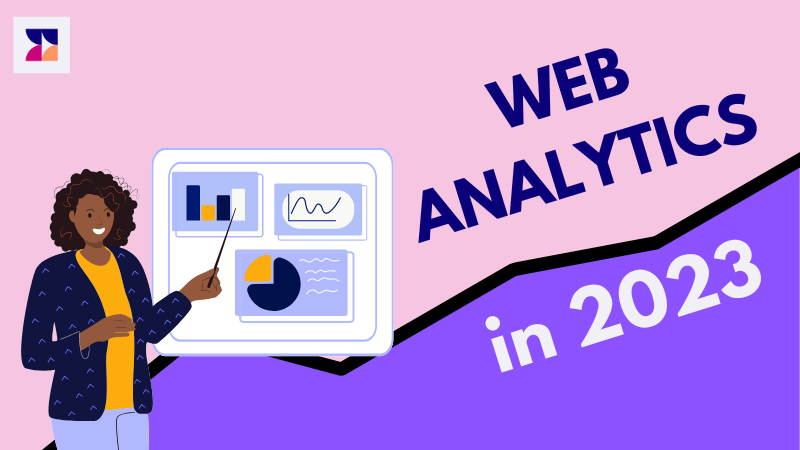Technology has revolutionised every industry, marketing included. Particularly over this past year with the introduction of AI into the mainstream, more and more marketing tools are being introduced on the market. Recent data suggests over 11,000 MarTech tools are available — and that number is only increasing.
It should come as no surprise, then, that marketers experience tool overload. 57% say they feel overwhelmed by the number of MarTech platforms to choose from and 54% say they’re using 50+ platforms.
In such a saturated market, how do you choose the right MarTech tools that genuinely move the needle in your business? And how do you avoid those that don’t?
Read on to discover our top tips for selecting marketing tech stack tools you actually need, plus expert-backed recommendations for essential MarTech tools (both paid and free!)
What is a marketing technology stack?
First, let’s get clear about what we’re talking about when we say ‘marketing technology stack.’
A marketing technology stack is also known as a marketing stack or MarTech stack. It’s the set of technology platforms marketers use to do their jobs — from managing and executing marketing materials to analysing performance and streamlining strategies.
Your marketing technology stack can (and should!) consist of multiple tools covering different marketing functions and channels.
For example, you can have Martech tools relating to SEO, paid ads, social media, your website, your blog, emails, podcasts — pretty much any platform you use for marketing. These tools can cover a range of functions, from website analytics and performance monitoring to content and digital asset management.
Why do you need a marketing tech stack? Now we’ve covered the ‘whats’, let’s take a look at the ‘whys’. Why do you need a marketing tech stack and how can it benefit your company?
- Enable data-driven decision-making and monitor performance with insights from analytics tools for your website, social media, paid ads, email campaigns and other platforms.
- Automate and streamline tasks with marketing project management software, like social media scheduling or email sequence automation platforms.
- Monitor trends and opportunities with apps and tools providing insights on trending keywords, social media hashtags, content topics and more.
- Monitor competitors with tools offering insights into their top-performing content and marketing campaigns.
What should be in a MarTech stack?
No two companies are the same. Therefore, no two companies’ MarTech stacks will be identical.
Your marketing technology stack should be built around your specific needs: the platforms you use and what you need to execute and measure.
To help you evaluate and select which tools to include, here are some tips on marketing stack must-haves and things to avoid.
Marketing technology stack must-haves
Website analytics tools
It’s essential to know how your website is performing. What pages bring the most traffic? Which ones have a high bounce rate? Do customers navigate easily across your site?
A good website analytics tool will provide insights into all of these metrics and more, so you can tweak and refine your site for optimal results.
SEO tools
One aspect your website performance hinges on is SEO. You’ll need to ensure website pages are properly SEO-optimised. But how do you know if it’s working?
SEO tools give you insights into your website’s keyword performance. They can also help you research keywords for targeting — alongside metrics like search volume and competitivity — and discover keywords your competitors target.
Paid ads tools
A good paid ads tool can help you monitor and coordinate ads, analyse performance and track ad spend. Nowadays, paid ad tools can also include machine learning to automatically assist with ad optimisation.
Email marketing tools
If you’re running email campaigns, having a quality email marketing tool is a game-changer. Email marketing tools help automate processes by scheduling campaigns and sequences, which is particularly useful if you want to initiate a welcome sequence or promote a new launch.
They also help you define and target specific audience segments, providing customers with dynamic email campaigns and messaging to truly connect with your brand.
Plus, they can provide analytics insights on emails, such as open and click-through rates.
Social media
Whether you’re a B2B business focused on LinkedIn or an e-commerce store with an Instagram presence, you’ll want to have a nimble tool for understanding social media analytics and audience preferences. Additionally, a good social media tool will help you schedule posts across platforms and identify new content opportunities, such as trending hashtags, music and competitor content.
Other tools
While these are the essentials, other aspects you may want to consider, depending on your specific needs, are:
- Marketing project management tools
- Content management systems
- Brand monitoring tools
- Landing page tools
- Video and design tools
- Automation tools
- Content curation tools
- Content optimisation tools
- Digital asset management tools
Tips for choosing marketing tools — and things to avoid!
- **Ensure your marketing technology stack is complete and tailored to your needs. **What platforms are you on? What analytics insights do you need? And where do you need to streamline and organise processes?
- On the flip side, having too many tools is also detrimental. Ideally, you want to avoid having multiple tools that do the same thing, as this will lead to disorganisation and confusion.
- Consider whether you actually need a tool. It’s very easy to get shiny object syndrome, especially with so many new AI tools coming out. Before you commit, consider if you genuinely need the tool or if it’s just a ‘nice to have.’
- Prioritise ease of use and integration for your team. If a piece of software is complex or not designed for your team size, it’s better to avoid it.
- Ensure the tool aligns with your company’s goals and growth projections. For example, you’ll want to ensure your website analytics software can accommodate your projected company growth regarding web page quantity and site traffic.
The ultimate marketing tech stack (according to experts!)
Now we’ve gone through what to look for and what to avoid, here are our top recommendations for essential MarTech tools to get you started building your marketing stack. These tools are backed by expert marketers’ recommendations, so you know you’re starting with the best of the best!
Website analytics: Wide Angle Analytics
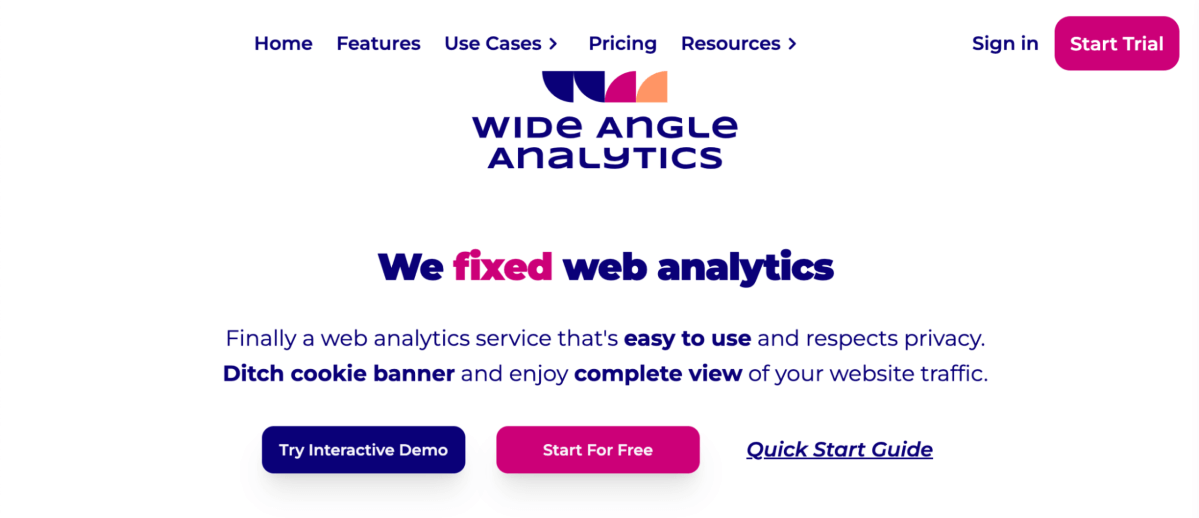
Wide Angle Analytics is THE website analytics platform for marketers seeking the most accurate insights, in an ethical, privacy-focused way. It gives you a complete overview of your website traffic, including via intuitive dashboards and custom, sharable reports — all while respecting user privacy and regulations like GDPR.
The platform cares about the GDPR and the Privacy of users. Use of this platform demonstrates to your customers that you are serious about their privacy from the beginning of the customer journey.
You can even try a free interactive online demo to see just how easy using Wide Angle Analytics is — give it a go here.
SEO: Semrush
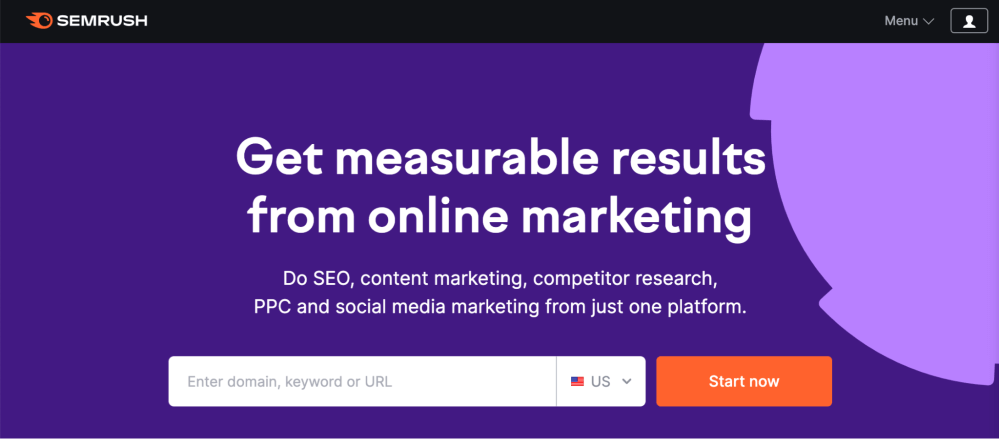
Semrush is the ultimate SEO tool. It’s possibly the most comprehensive software for SEO necessities like keyword research, website SEO audits, and keyword tracking and monitoring. Plus, it provides insights on competitors, content trends and even PPC and social media marketing.
SEMrush is an indispensable tool for comprehensive SEO analysis, keyword research and competitor tracking. Its actionable insights have significantly improved our website's search engine rankings and organic traffic.
Paid ads: AdEspresso
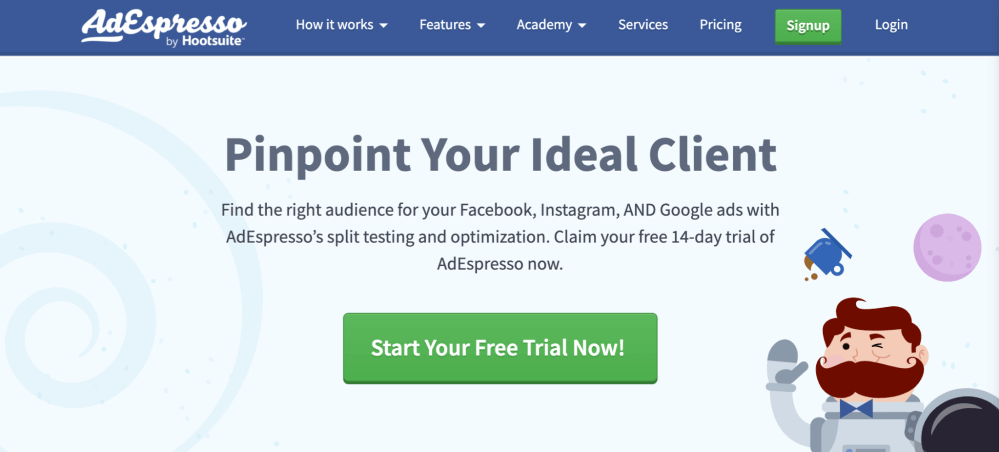
Unlike native apps, AdEspresso gives you comprehensive support with paid ads across Facebook, Instagram and Google. It makes it easy to monitor and analyse all your ads in one place, streamlining processes and helping you optimise on all fronts.
With its intuitive interface and powerful optimization features, AdEspresso streamlines the entire ad management process, from creating ad variations to analyzing performance metrics. Its A/B testing capabilities are particularly invaluable, allowing us to fine-tune our campaigns for maximum effectiveness. Sure, it comes with a price tag, but the time saved and the insights gained more than justify the investment.
Social media: Sprout Social
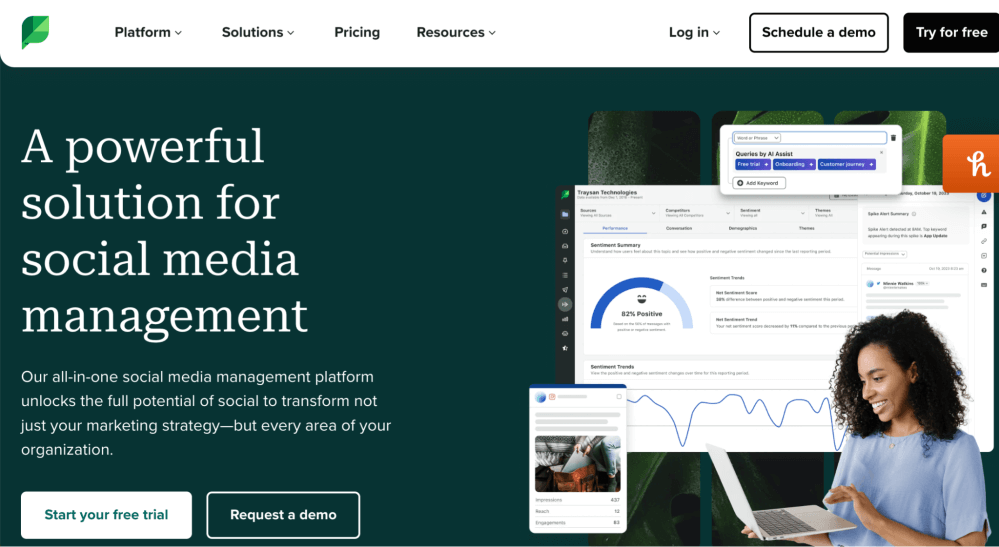
Sprout Social unifies your social media campaigns in one easy-to-use platform, enabling you to cross-schedule posts and giving you insights across platforms. It also seamlessly integrates with other apps to make your life easy.
Sprout Social has been an absolute game-changer for me... The robust analytics provided by Sprout Social have been invaluable in understanding audience behaviour and refining our content strategy. Plus, its intuitive interface makes it a breeze to navigate, saving me precious time that I can allocate to other tasks.
Email: Brevo
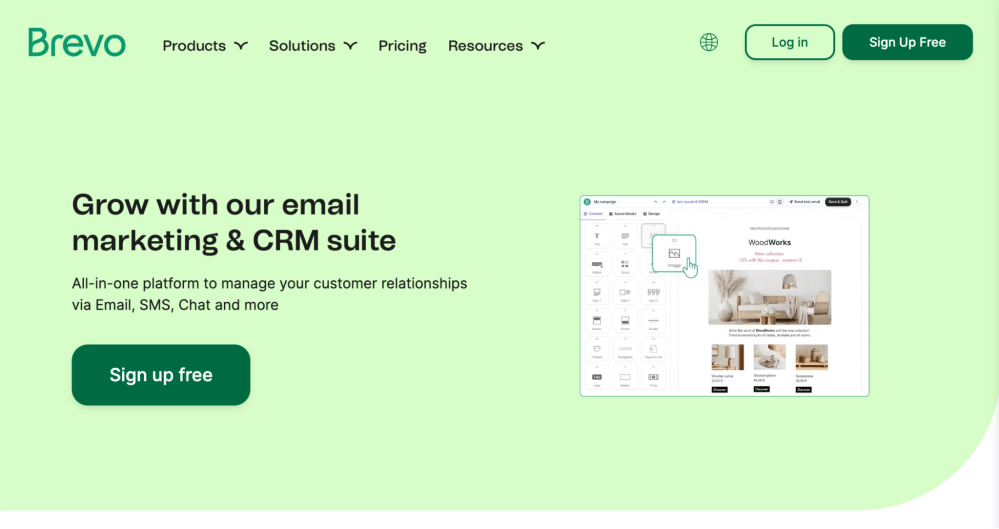
Brevo is top of our list when it comes to nifty email marketing tools. It provides a comprehensive overview of email campaign performance and helps you structure and schedule email marketing. But it doesn’t stop there. Brevo also provides insights into SMS, Chat and other platforms, making it an all-in-one management tool for customer relationships
Brevo is excellent for marketers who want to revamp their marketing campaigns and increase their leads and conversion rates... I could increase the success rate of my email marketing campaigns by 50% through Brevo.
Free marketing tech stack options (according to experts!)
If you’re a small business or solopreneur, you may be looking for marketing stack options on a budget. The following tools are recommended by experts as great free alternatives if you’re building a marketing technology stack without buckets of capital.
Be aware — these tools may not offer the same breadth of features and benefits as the paid options above. But, they’re a good starting point.
Website: Google Analytics 4 (GA4)
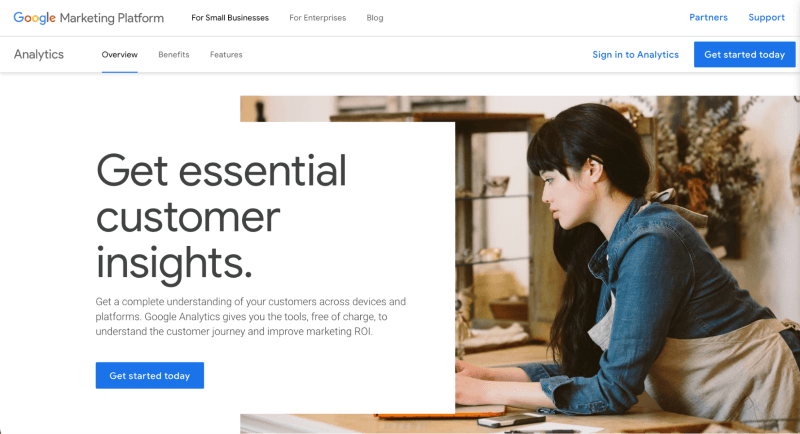
Google’s analytics software, GA4, is the starting point for many marketers deciphering website analytics. It provides insights like website traffic and visitor behaviour, as well as events-based data such as clicks and conversations. It also has predictive capabilities through ML modelling.
Whether it's tracking goal completions, analyzing traffic sources, or segmenting audiences, Google Analytics equips us with the information we need to make informed decisions.
But be wary: while GA4 is free to use, it is relatively new and many marketers are finding teething issues with the platform. Additionally, GA4 is not as privacy-centric as other options, such as Wide Angle Analytics.
SEO: Google Trends
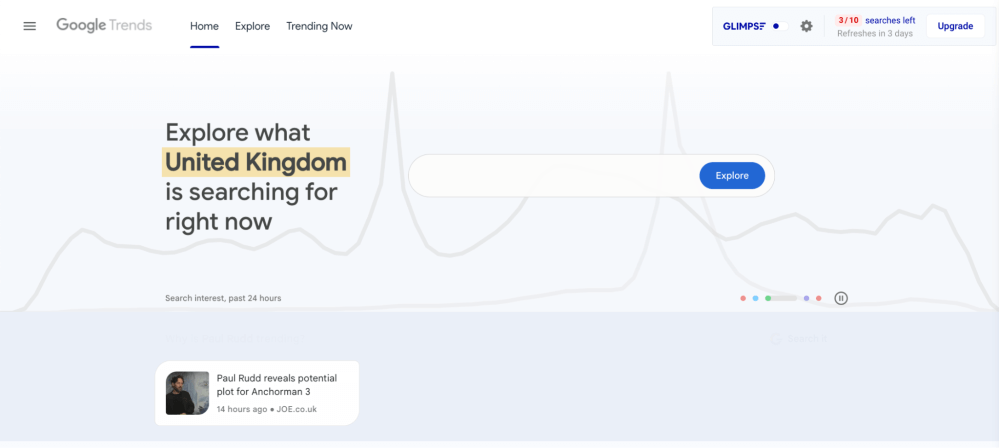
Google Trends is your trusty ally when it comes to what’s going on in the world of online search. See trending search terms for different industries and localities, related keyword suggestions and even how online interest has changed over time.
Google Trends stands out to me because it gives me free access to a huge amount of data on specific keywords, looking back to the year 2004, and an accurate look into trending topics in my niche. A great feature is being able to compare the popularity of two different search terms over time and identifying seasonal trends. It frequently helps me find the best search terms to use as well as pinning down a time of year/month to target specific keywords for search ads.
While it’s a great starting point, note that Google Trends does not provide insights into specific search volumes or competitivity.
Paid ads: Facebook Ads Manager
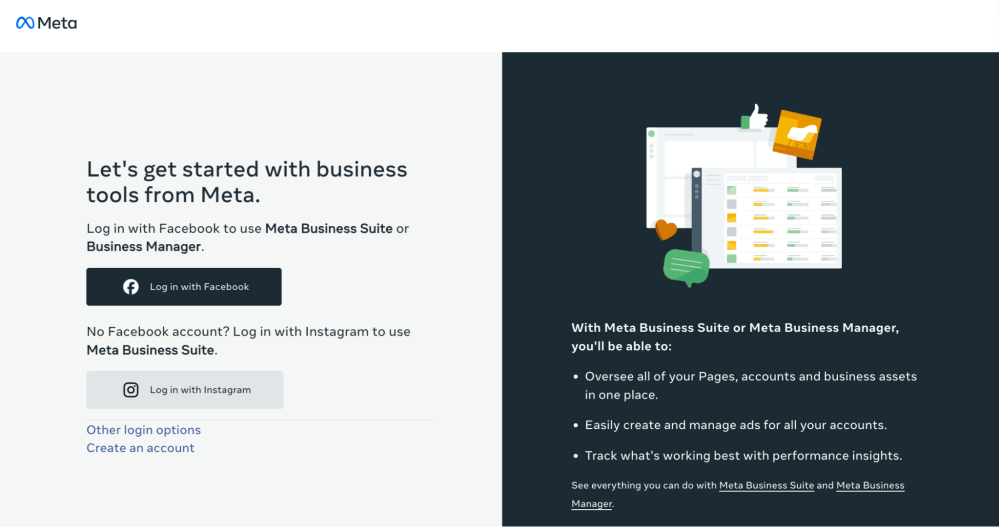
If you want to run paid ads, targeting Instagram and Facebook is a great starting point. Meta provides a free online platform, Facebook Ads Manager, to help you coordinate, monitor and streamline ads across both channels.
Facebook Ads Manager is THE platform for managing and optimising Facebook and Instagram ad campaigns. It has a user-friendly interface and targeting options that make it an ideal choice for businesses looking to advertise on Meta and optimise ad performance.
Be aware that as it’s owned by Meta, Facebook Ads Manager doesn’t extend to assisting with ads on other channels, like Google or TikTok.
Social media: Buffer
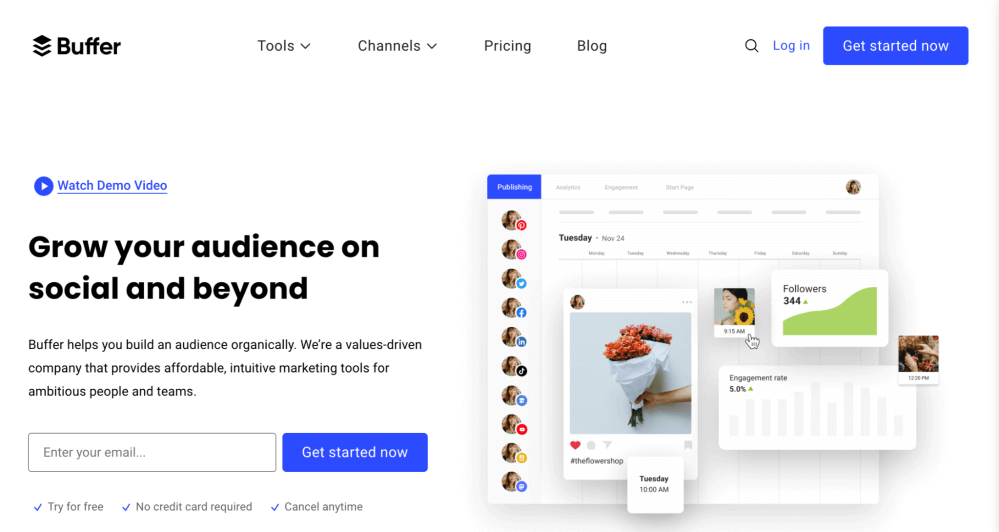
Social media scheduling and analytics tool Buffer offers a free version for individuals and start-ups. You can connect up to three social media channels, including access to planning and publishing tools, and AI assistance.
Buffer is a user-friendly social media management tool that helps schedule and publish content on social media platforms. It is free so the analytics and collaboration features are basic but still suitable for small businesses and individuals managing social media on their own.
Email: Mailchimp
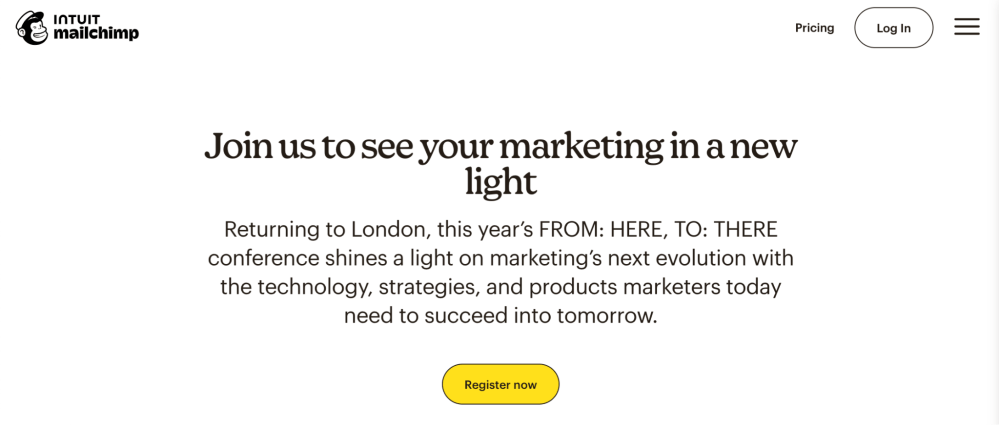
AI-powered email marketing platform Mailchimp offers a free plan that’s ideal for small businesses and solopreneurs looking to build up a mailing list. It includes assistance with creating and automating email campaigns and provides analytics insights on performance and customers.
Mailchimp stands out for its user-friendly interface and robust features, allowing seamless email campaign management and automation. It's been instrumental in increasing our email engagement rates and driving conversions effectively.
Kickstart your marketing technology stack
When it comes to assembling your marketing tech stack, there’s no one-size-fits-all. Every marketing department and agency is different. Your marketing stack should be based on what you need to glean valuable insights and streamline processes.
Hopefully, this article has provided a great starting point of expert-recommended tools to explore, as well as what to look for when assessing your options.
And if you’re looking to get going with an accurate, easy-to-use and privacy-centric website analytics tool, don’t forget to give Wide Angle Analytics’ free online interactive demo a try.
Marketing tech stack FAQs
What is the tech stack of a digital marketer?
A marketing technology stack is a collection of software applications that work together to help you achieve your marketing goals. This can include tools to assist with website analytics, social media, email campaigns, paid ads and more.
What technology is used in marketing?
Website analytics, e-mail, social media, project management, paid ads and SEO tools are some of the most essential tools used in marketing. However, the list can be much longer than this, depending on what the marketing team and company require. Marketers may also consider software relating to brand monitoring, automation, video, design and much more.
Additional sources
Lauren Meredith is a seasoned content marketing strategist and writer helping online businesses connect with their audience and maximise organic success. Her SEO content secures #1 positions on Google, features in publications such as The Independent, Yahoo and academic domains, and has won an award at the Digital Growth Awards.


